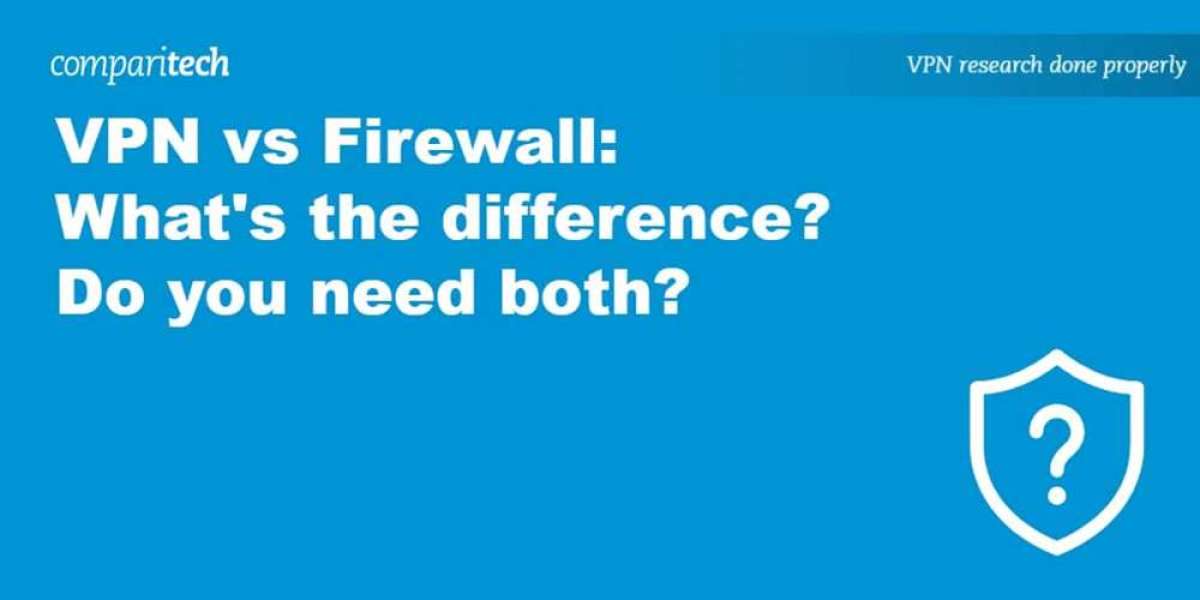VPN and Firewall Overview
Understanding VPN and Firewall: Complementary Security Tools for Complete Protection
In today's digital landscape, securing your online presence requires multiple layers of protection. Two essential components in this security framework are VPNs and firewalls, each serving distinct but complementary functions in safeguarding your digital life.
The Fundamental Differences
Firewalls function as the first line of defense for your network. They act as vigilant gatekeepers, monitoring incoming and outgoing traffic based on predetermined security rules. By analyzing data packets, firewalls block unauthorized access attempts, suspicious connections, and potentially harmful content before they can reach your devices.
VPNs, meanwhile, operate differently by creating encrypted tunnels for your internet traffic. This encryption prevents third parties—including your internet service provider, government agencies, or malicious actors on public networks—from monitoring your online activities or intercepting your data.
Why Firewalls Matter
Network perimeter protection is the primary function of firewalls. They effectively:
• Block unauthorized access attempts
• Filter potentially malicious traffic
• Prevent certain types of malware from entering your network
• Control which applications can access the internet
• Provide alerts about suspicious activity
The Power of VPNs
Virtual Private Networks offer distinct security benefits:
• Encrypt your internet traffic, making it unreadable to third parties
• Mask your IP address and geographic location
• Enable access to geo-restricted content
• Bypass censorship in restrictive regions
• Provide secure remote access to private networks
Business Applications
Organizations leverage both technologies extensively. Firewalls protect corporate networks from external threats, while VPNs enable secure remote work through:
• Site-to-site connections linking multiple office locations
• Remote access capabilities for employees working from home
• Secure access to sensitive company resources from anywhere
The Case for Using Both
Using only one of these security tools leaves significant vulnerabilities. A firewall without a VPN means your data remains unencrypted and potentially visible during transmission. A VPN without a firewall leaves your network perimeter inadequately protected against incoming threats.
When implemented together, these technologies create a comprehensive security system that protects both your network boundaries and your data in transit, providing the robust protection essential in today's threat landscape.
Understanding Network Security: Firewalls and VPNs
Firewalls: Your First Line of Defense
Firewalls serve as crucial gatekeepers for your network traffic, operating at multiple levels to protect your devices. At the packet level, they examine IP addresses, ports, and protocols to determine which connections should be permitted. More sophisticated firewalls perform deep application-level analysis, inspecting URLs, HTTP headers, file types, and application behaviors to block potential threats.
For instance, a basic firewall rule might block all incoming traffic to specific vulnerable ports, while advanced rules can prevent certain applications from accessing the internet or block specific websites based on content.
Most operating systems include built-in firewall protection. Windows offers comprehensive inbound and outbound filtering capabilities, while macOS focuses primarily on inbound connection control. It's essential to verify that your system's firewall is properly configured and activated—an inactive firewall provides no protection.
Home networks typically benefit from router-based firewalls that protect all connected devices by managing ports and preventing unauthorized access. However, these basic firewalls may not detect sophisticated malware that can scan for vulnerabilities and exploit common ports.
Enterprise environments often deploy dedicated hardware firewall appliances with advanced features like unified threat management, deep packet inspection, and intrusion prevention systems that can identify and block suspicious patterns rather than simply enforcing static rules.
VPNs: Your Privacy Shield
While firewalls control connections, Virtual Private Networks (VPNs) focus on encrypting your internet traffic. A VPN creates a secure tunnel between your device and a VPN server, making your data unreadable to potential eavesdroppers including network administrators, ISPs, and potential attackers.
High-quality VPNs utilize robust encryption protocols like OpenVPN or WireGuard with strong ciphers such as AES-256 or ChaCha20. This encryption prevents surveillance of your online activities, whether you're using home, work, or public networks.
VPNs offer several key benefits beyond basic encryption. They allow users to bypass network restrictions imposed by organizations or governments, access region-restricted content while traveling, and prevent ISP monitoring and data retention. By masking your IP address, VPNs also help maintain anonymity and reduce tracking.
When selecting a VPN, prioritize providers offering independently audited no-logs policies, RAM-only servers that can't retain data, automatic kill switches that prevent data leaks if the connection drops, and protection against DNS/IPv6 leaks. Free VPNs often lack these critical security features.
Different VPN Configurations
Consumer VPNs represent just one type of virtual private network. Other configurations include:
- Host-to-Host VPNs using transport mode encryption to secure specific system communications while leaving routing information visible
- Site-to-Site VPNs employing tunnel mode encryption to connect entire networks securely across the internet
- Remote Access VPNs allowing individual devices to connect to corporate networks with full encryption to the network edge
The Verdict: You Need Both
Firewalls and VPNs address different aspects of network security. A firewall controls which connections are permitted, blocking malicious traffic and reducing your attack surface. A VPN encrypts your traffic and masks your identity, protecting your privacy and securing your data in transit.
For comprehensive protection, implement a layered security approach combining a properly configured firewall, reliable endpoint protection, and a reputable VPN service. This combination provides the strongest defense against both unauthorized access and privacy violations in today's complex digital landscape.A VPN scrambles your internet traffic and hides your IP address so outsiders on the same network, your ISP, or local administrators can’t easily see which sites you visit or what you send and receive.
A firewall controls which connections are allowed in and out of a device or network, blocking known threats, unwanted services, and suspicious ports.
They solve different problems: VPNs protect privacy and secure remote access; firewalls enforce network rules and stop many attacks before they reach your devices.
When a VPN is useful:
- On public Wi‑Fi: prevents other users on the hotspot from sniffing your logins or data.
- For privacy: conceals your real IP and reduces local tracking by ISPs or network owners.
- To reach geo‑restricted content: access region‑locked streaming and websites while traveling.
- For secure remote work: remote‑access VPNs let employees connect safely to company resources.
- To limit ISP logging: encryption makes retained metadata less revealing.
- To bypass local filtering when you have a legitimate need (school, workplace restrictions).
- Whenever you’re handling sensitive accounts or files and want an extra layer of encryption.
When you should turn a VPN off or avoid using one:
- Company policy forbids personal VPNs on corporate devices—follow those rules.
- You’re on a captive portal (hotel/café/airport): sign into the Wi‑Fi first, then enable the VPN.
- A website or service blocks VPN traffic (some banks and government sites do this).
- Low latency is critical (competitive gaming, some video calls): a VPN can add lag.
- You’re using an untrustworthy or ad‑injecting free VPN—these can leak or sell data.
- Your device is infected with malware—VPNs don’t remove malware; clean the device first.
- You intend to do anything unlawful—don’t use a VPN to evade the law or sanctions.
Why a firewall may block a VPN and how to fix it:
- Firewalls can deny the ports, protocols, or tunnels a VPN uses; this is common on corporate and public networks.
- Troubleshooting steps: allow the VPN app in the firewall/security software, update the VPN client, restart the device, and test on a trusted home network.
- If a firewall still blocks the VPN, add an exception for the app or server (follow your VPN provider’s guide) or ask your network admin for help.
- Some ISPs or routers deliberately block VPNs; providers may offer obfuscation or alternate ports to bypass such blocks.
- Only disable a firewall briefly for testing on a trusted network and re‑enable it immediately—never turn it off on public Wi‑Fi or untrusted machines.
Does encryption hide malicious traffic from a firewall?
- Yes: a standard firewall can see connection endpoints and metadata but not the encrypted content inside a VPN tunnel.
- That means encrypted traffic can conceal harmful payloads from basic inspection, but using a VPN with a properly configured firewall, up‑to‑date antivirus, and sensible network policies provides both privacy and perimeter protection.
- If you suspect dangerous traffic, temporarily disconnect the VPN on a trusted network so your security tools can inspect traffic, then reconnect once the check is complete.
What an NGFW (next‑generation firewall) does differently:
- NGFWs add application awareness, deep‑packet inspection, intrusion prevention, TLS inspection, centralized logging, and threat analytics beyond simple port blocking.
- They give businesses better visibility into apps and some encrypted traffic, but they cost more, are more complex to manage, and TLS inspection can raise privacy and performance concerns.
- Most home users get sufficient protection from a modern router or the OS firewall plus antivirus; NGFWs are primarily for organisations and power users.
Home and small‑business firewall and appliance options (what they’re good for):
- Little Snitch: macOS outbound app control for users who want to see and block outgoing connections.
- Firewalla (Gold family): user‑friendly hardware for stronger home network protection with minimal setup.
- Sophos Home: software suite with enhanced network protection without extra hardware.
- Ubiquiti UniFi Dream Machine (UDM‑Pro/UDM‑SE): enterprise‑style controls for power users already in the UniFi ecosystem.
- Netgate (pfSense) appliances: commercial hardware for running pfSense for advanced home offices.
- pfSense/OPNsense on mini‑PCs (Protectli/Qotom): DIY enterprise features for tech‑savvy users willing to configure their own setup.
Consumer VPNs vs corporate VPNs:
- Corporate remote‑access VPNs connect employees directly to company networks and resources with centralized management.
- Site‑to‑site VPNs link offices and remote sites so resources remain private between locations.
- Consumer VPNs route your traffic through the provider’s proxy servers to add privacy and region spoofing, but they don’t replace managed corporate tunnels.
- Many remote workers still use consumer VPNs on public Wi‑Fi to protect credentials and block local snooping when a corporate option isn’t available.
Best practices summary:
- Use both a VPN and a firewall: VPNs for encryption and privacy, firewalls for traffic control and threat blocking.
- Keep your VPN client, firewall, router firmware, and antivirus up to date.
- Choose reputable, audited VPNs and avoid shady free services that log or inject ads.
- Respect workplace and local laws—ask your IT team for managed access if you need it for work.
- When in doubt about blocked services or connectivity, troubleshoot on a trusted home network and seek guidance rather than attempting to bypass security policies.
Network Security Basics
Understanding Network Security: VPNs and Firewalls Explained
Network security can be complex, but understanding the difference between VPNs and firewalls is essential for protecting your digital life. Let's explore how these technologies work and why you might need both.
Firewalls: Your First Line of Defense
A firewall acts as a security barrier between your device and potential threats from the internet. It monitors incoming and outgoing network traffic based on predetermined security rules. These rules can be customized to block remote desktop access, prevent specific applications from connecting to the internet, or close vulnerable ports that might be exploited by attackers.
The beauty of firewalls lies in their flexibility. You can create rules based on applications, websites, IP addresses, ports, time schedules, or even content categories like streaming services or adult websites. However, most home users don't need complex configurations—the default settings typically provide adequate protection by keeping the firewall active, closing unused ports, blocking suspicious IP addresses, and controlling which applications can access the internet.
Built-in Protection for Your Devices
Both Windows and macOS come with built-in firewall solutions. Windows Defender Firewall offers effective traffic filtering and security rule implementation at your network's edge, providing basic malware protection for most home users. Just ensure it's activated and keep your system updated.
Similarly, macOS includes an application firewall that can be enabled through System Settings. While it primarily focuses on inbound connections to prevent unauthorized access, it doesn't filter outbound content by default. For more comprehensive protection, including outbound traffic control, third-party solutions like Little Snitch are available.
Understanding VPNs: Privacy Through Encryption
Unlike firewalls that filter traffic, Virtual Private Networks (VPNs) focus on privacy through encryption. A VPN creates a secure tunnel for your internet traffic, encrypting your data and masking your real IP address from websites and online services you access.
This encryption prevents Deep Packet Inspection (DPI)—a technique used by network administrators and Internet Service Providers to examine data packets transmitted over networks. While DPI can identify VPN usage through protocol patterns or port detection, it cannot decrypt properly secured VPN traffic or reveal your browsing history.
Do You Need Both?
Yes, for comprehensive protection. Firewalls and VPNs serve different but complementary purposes:
• Firewalls control what traffic can enter or leave your network based on security rules
• VPNs encrypt your traffic and mask your identity online
Using both technologies provides a more complete security solution—firewalls block malicious connections, while VPNs protect your privacy and secure your data when using public networks or accessing sensitive information online.
What is a Netflix VPN and How to Get One
A Netflix VPN is a specialized virtual private network service designed primarily to bypass geographical restrictions imposed by Netflix's content licensing agreements. Its core function enables subscribers to overcome regional blocks by connecting through servers in different countries, thereby unlocking diverse international content libraries otherwise unavailable in their home region. Essentially, a Netflix VPN provides access to the global catalog of movies and shows offered by the streaming service.
Why Choose SafeShell as Your Netflix VPN?
If you're looking to access region-restricted content on Netflix using a VPN, you might want to consider SafeShell VPN as your go-to solution. Unlike many other services where you might encounter the frustrating "Netflix vpn not working" error, SafeShell VPN provides reliable access with its high-speed servers specifically optimized for seamless streaming. With lightning-fast connection speeds and no bandwidth limitations, you can enjoy buffer-free playback in high definition without interruptions. Additionally, SafeShell VPN's exclusive App Mode feature allows you to unlock content from multiple regions simultaneously, expanding your entertainment options beyond geographical boundaries.
SafeShell VPN also stands out with its impressive multi-device capability, allowing connection on up to five devices at once across various platforms including Windows, macOS, iOS, Android, and smart TVs. Your online privacy remains protected through the proprietary "ShellGuard" VPN protocol, ensuring top-level security for all your browsing sessions. For those hesitant to commit immediately, SafeShell VPN offers a flexible free trial plan that lets you experience all these premium features before making a decision, making it an ideal choice for anyone seeking to enhance their Netflix streaming experience without restrictions.
A Step-by-Step Guide to Watch Netflix with SafeShell VPN
Unlocking global Netflix content has never been easier with SafeShell Netflix VPN, a powerful tool designed to bypass geographical restrictions. To begin your journey to unrestricted streaming, first visit the SafeShell VPN website and select a subscription plan that aligns with your needs. Once you've completed the subscription process, download the appropriate application for your device - whether you're using Windows, macOS, iOS, or Android, SafeShell has you covered with dedicated apps for each platform.
After installation, launch the SafeShell application and log into your account using your credentials. For optimal Netflix streaming performance, select the APP mode when prompted, as this configuration is specifically optimized for streaming services. Next, browse through the server list and select a location that corresponds to the Netflix library you wish to access - popular choices include servers in the United States, United Kingdom, and Canada. Simply click the connect button and wait for the secure connection to establish.
With your SafeShell Netflix VPN connection now active, open the Netflix application or navigate to the Netflix website in your browser. Sign in with your existing Netflix credentials, and you'll immediately notice that the content library has changed to reflect the region of your selected VPN server. You can now enjoy shows and movies that were previously unavailable in your location, all while maintaining a secure and private connection through SafeShell VPN's encrypted network.






